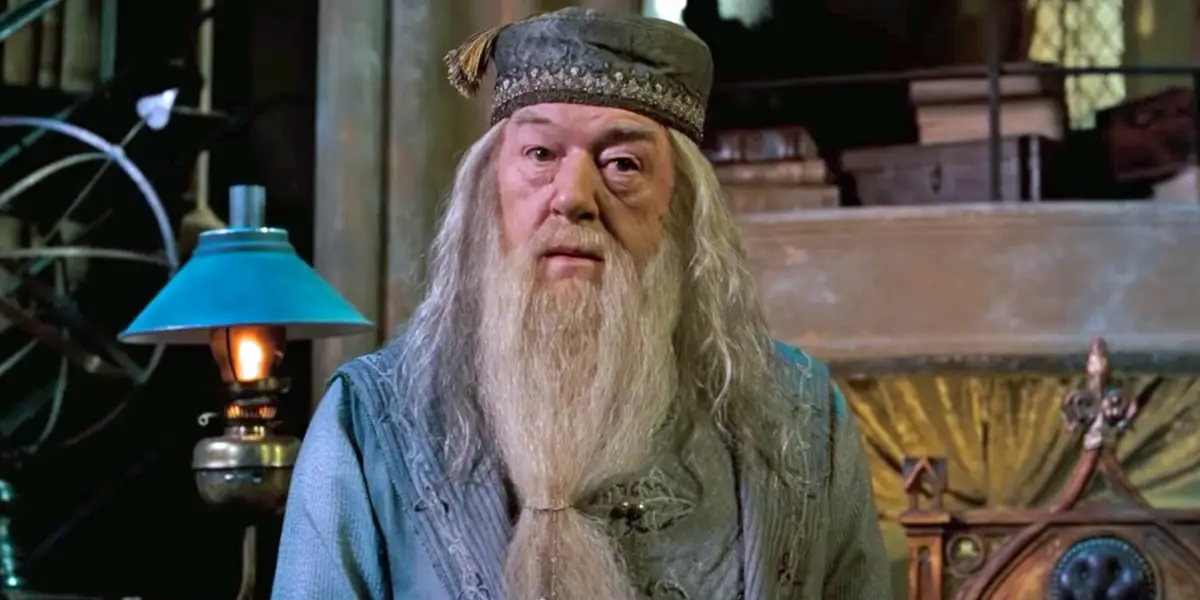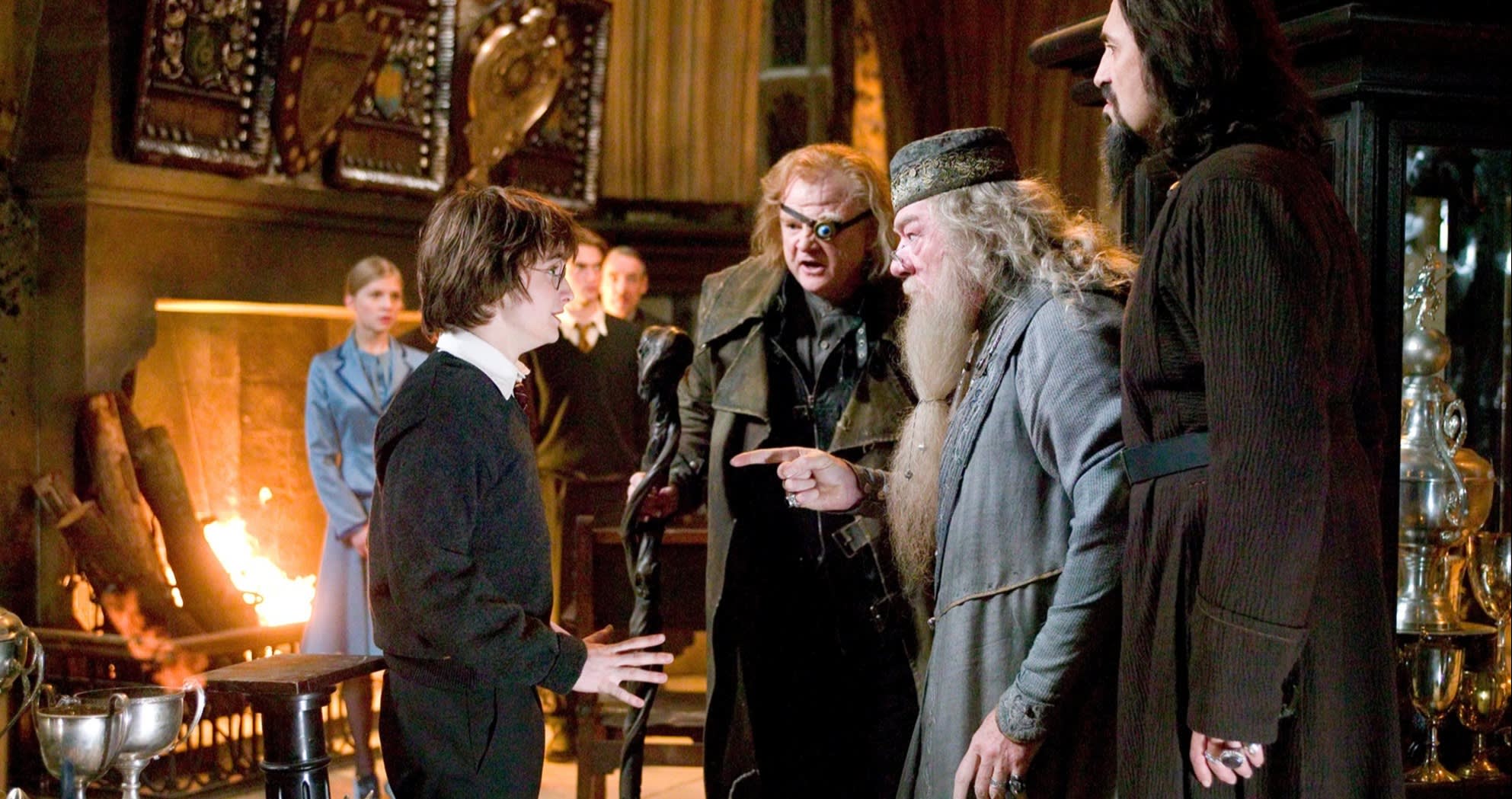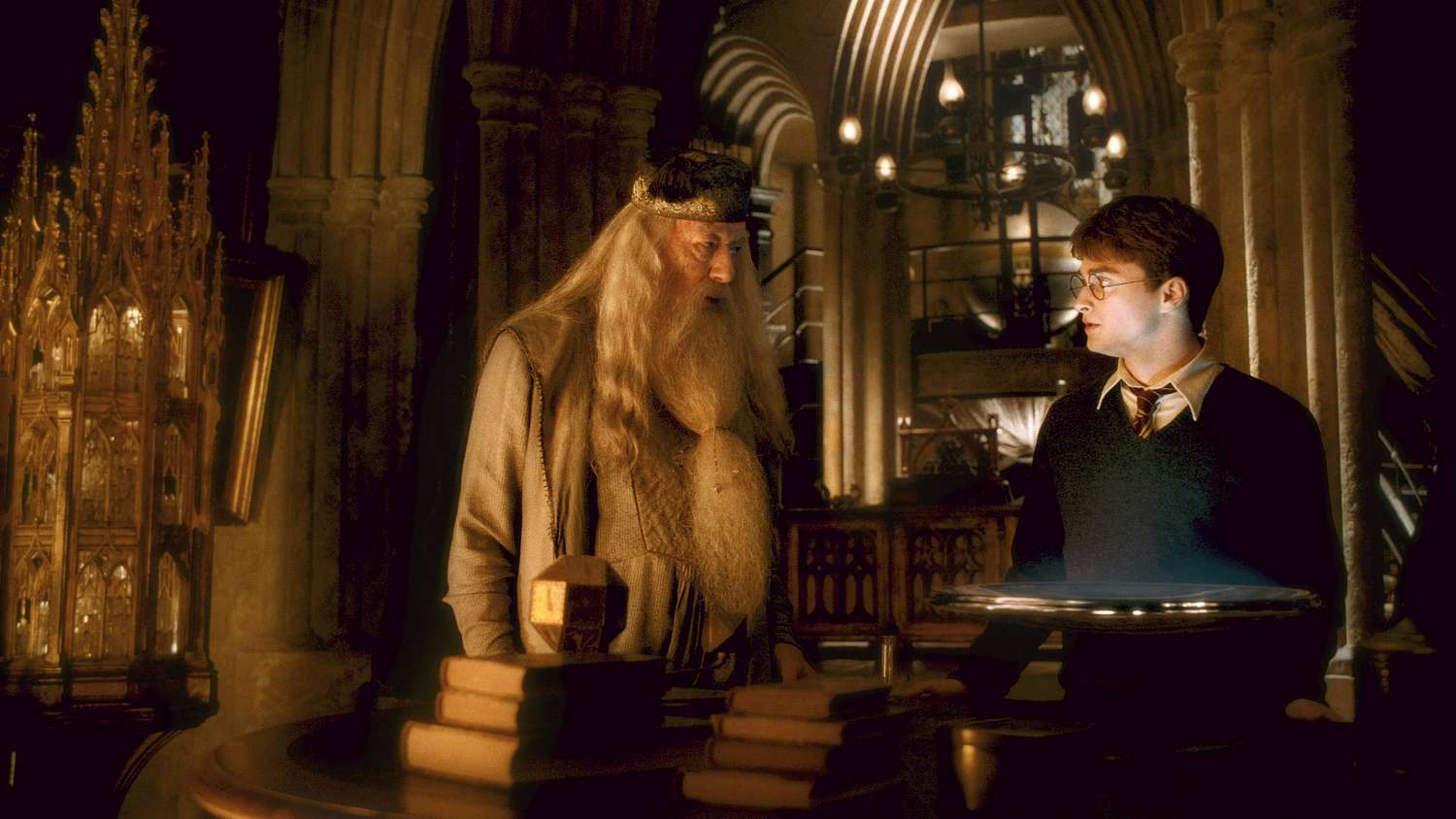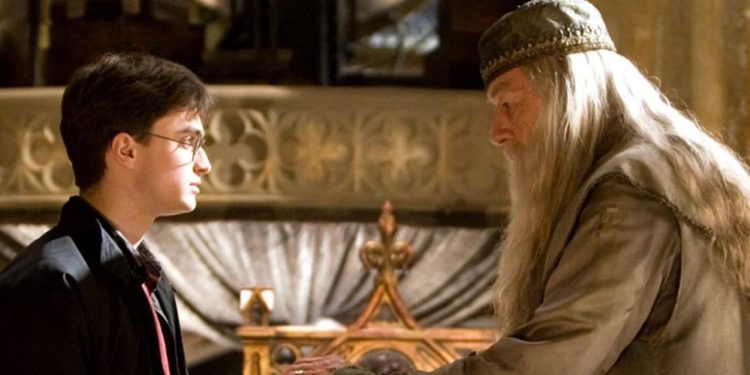In the magical realm of J.K. Rowling’s Harry Potter series, few debates are as fiercely contested as the true nature of Albus Dumbledore’s relationship with Harry Potter. The central question revolves around whether Dumbledore was a benevolent mentor or a cold, calculating manipulator. This controversy gained prominence following Severus Snape’s dramatic accusation that Dumbledore had raised Harry “like a pig for slaughter.”
The intricate dynamics between these two iconic characters have left fans grappling with their interpretations, and the debate has only intensified as more details surface from Rowling’s expansive universe. Did Dumbledore really treat Harry as a mere pawn in a high-stakes game, or was there a deeper, more compassionate rationale behind his actions?

Snape’s Accusation and Its Impact
The accusation in question emerges from a pivotal scene in Harry Potter and the Deathly Hallows, where Harry views memories through Snape’s Pensieve. In this moment, Snape confronts Dumbledore with the chilling words:
“Everything was supposed to be to keep Lily Potter’s son safe. Now you tell me you have been raising him like a pig for slaughter.”
This line starkly contrasts with Dumbledore’s image as a wise and caring mentor.
This revelation not only shook Harry’s perception of Dumbledore but also ignited a heated debate among fans. Was Dumbledore truly a mastermind who used Harry as a sacrificial piece in his grand plan, or was Snape’s accusation a reflection of his own tortured past and complex feelings toward Dumbledore?
Fans’ Defense of Dumbledore: The Prophecy and Beyond
As discussions about Dumbledore’s true intentions heated up, astute fans began to dissect the narrative intricately to uncover the truth. Notably, a detailed analysis by Reddit user u/CommanderCuntPunt sheds light on the misconceptions surrounding Dumbledore’s knowledge and actions.
One significant point clarified is the nature of the prophecy made by Sybill Trelawney. The prophecy, which predicted the birth of a child who could vanquish Voldemort, never explicitly named Harry Potter. Consequently, Dumbledore could not have known Harry was the prophesied child until later in the series. This realization came into focus during Goblet of Fire, making it clear that Dumbledore’s knowledge was limited and his actions were based on evolving information.

The Truth About the Horcruxes
Another crucial element in debunking the “guinea pig” theory is the issue of Voldemort’s Horcruxes. Fans argue that Dumbledore’s awareness of Voldemort’s Horcruxes developed gradually. While he was aware of Voldemort’s quest for immortality, it wasn’t until the events of Goblet of Fire that he discovered Harry was an unintentional Horcrux. This discovery did not occur until Dumbledore revealed Voldemort’s use of his own blood to create Horcruxes.
Dumbledore’s Mentor Role: A Closer Look
Dumbledore’s guidance throughout the series reflects a complex but ultimately protective role. His seemingly cryptic advice and indirect methods were part of a strategy to prepare Harry for a destiny that was both extraordinary and perilous. Far from being a heartless strategist, Dumbledore’s actions were driven by a desire to equip Harry with the knowledge and strength needed to confront Voldemort.

In conclusion, the notion that Dumbledore raised Harry Potter as a mere “guinea pig” is a misconception rooted in misinterpretations of the series’ complex narrative. Through detailed analysis and a deeper understanding of the storyline, it becomes evident that Dumbledore’s intentions were far more nuanced and compassionate than Snape’s accusation might suggest. His role as a mentor was indeed pivotal, aimed at preparing Harry for the ultimate battle against darkness.
For fans and newcomers alike, unraveling these layers of Dumbledore’s character enriches the experience of J.K. Rowling’s magical world, reminding us that even the most enigmatic figures have a story worth exploring.









